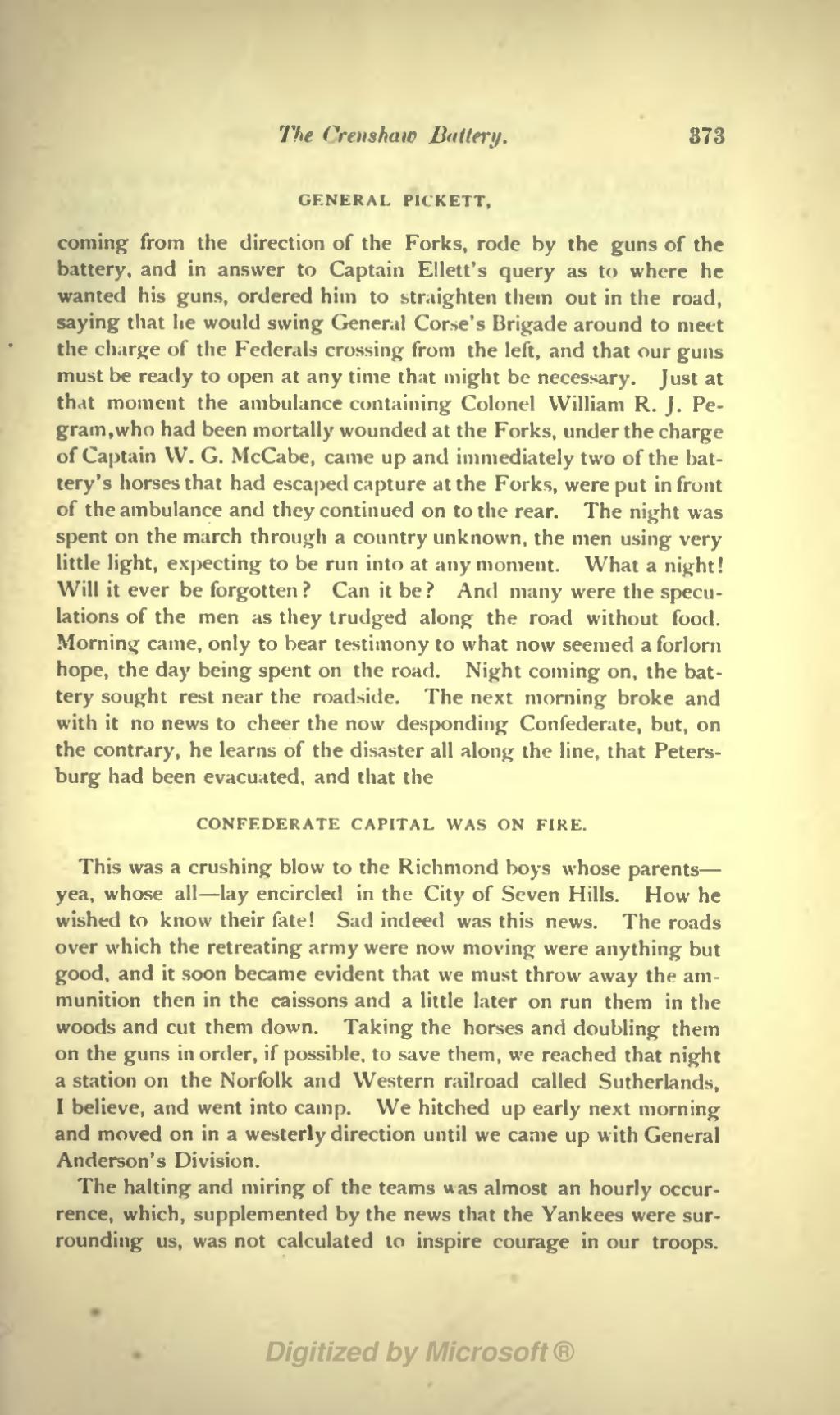7V ('re)ishaw lt<i(/n->/.
GENERAL PICK KIT,
coming from the direction of the Forks, rode by the guns of the battery, and in answer to Captain Ellett's query as to where he wanted his guns, ordered him to straighten them out in the road, saying that he would swing General Corse's Brigade around to meet the charge of the Federals crossing from the left, and that our guns must be ready to open at any time that might be necessary. Just at that moment the ambulance containing Colonel William R. J. Pe- gram.who had been mortally wounded at the Forks, under the charge of Captain W. G. McCabe, came up and immediately two of the bat- tery's horses that had escaped capture at the Forks, were put in front of the ambulance and they continued on to the rear. The night was spent on the march through a country unknown, the men using very little light, expecting to be run into at any moment. What a night! Will it ever be forgotten ? Can it be ? And many were the specu- lations of the men as they trudged along the road without food. Morning came, only to bear testimony to what now seemed a forlorn hope, the day being spent on the road. Night coming on, the bat- tery sought rest near the roadside. The next morning broke and with it no news to cheer the now desponding Confederate, but, on the contrary, he learns of the disaster all along the line, that Peters- burg had been evacuated, and that the
CONFEDERATE CAPITAL WAS ON FIRE.
This was a crushing blow to the Richmond boys whose parents yea, whose all lay encircled in the City of Seven Hills. How he wished to know their fate! Sad indeed was this news. The roads over which the retreating army were now moving were anything but good, and it soon became evident that we must throw away the am- munition then in the caissons and a little later on run them in the woods and cut them do\vn. Taking the horses and doubling them on the guns in order, if possible, to save them, we reached that night a station on the Norfolk and Western railroad called Sutherlands, I believe, and went into camp. We hitched up early next morning and moved on in a westerly direction until we came up with General Anderson's Division.
The halting and miring of the teams was almost an hourly occur- rence, which, supplemented by the news that the Yankees were sur- rounding us, was not calculated to inspire courage in our troops.
